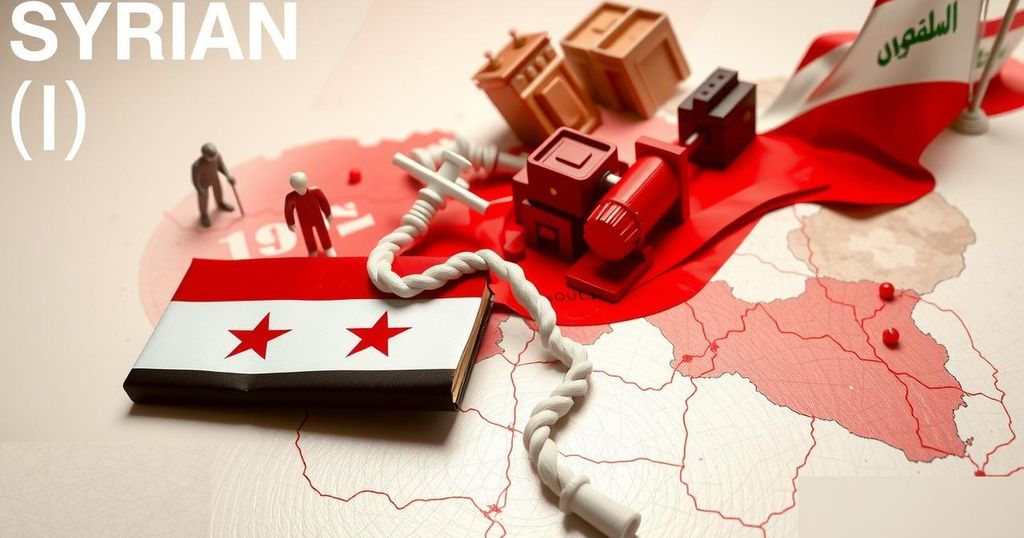Shifting Alliances: The Maghreb’s Response to the Fall of Assad in Syria
The fall of Bashar al-Assad has triggered a significant shift in the positions of Algeria, Tunisia, and Morocco regarding the Syrian conflict. Algeria initially supported Assad but shifted to a neutral stance after his flight, calling for dialogue among Syrian factions. Conversely, Morocco condemned Algeria’s support due to fears of democratic change, while Tunisia’s relations with Syria have evolved significantly under President Saied. All three nations express concerns about possible security threats from returning fighters.
The unexpected downfall of Bashar al-Assad has significantly influenced the dynamics within the Maghreb region, particularly in Algeria and Tunisia, prompting a shift in their positions regarding the Syrian crisis. Originally, Algeria extended its support for Assad amidst claims of “terrorist attacks” by opposition forces. However, following Assad’s abrupt retreat to Moscow, Algeria adopted a more neutral stance, calling for dialogue among Syrian factions and emphasizing solidarity with the Syrian populace, deeply rooted in shared historical connections. On the contrary, Morocco swiftly criticized Algeria’s firm backing of Assad, asserting that such allegiance stemmed from a fear of democratic change that both regimes dread. Meanwhile, Tunisia’s foreign policy initially echoed solidarity with Assad but evolved significantly under President Kais Saied, who later sought to normalize relations, viewing the Syrian crisis as an internal issue. Amidst these developments, all three nations express grave concerns regarding potential security threats posed by returning fighters from the Syrian conflict.
The Syrian civil war has drastically altered the geopolitical landscape in the Middle East, drawing reactions from regional powers like Algeria, Tunisia, and Morocco. Historically, Algeria has maintained close ties to Syria, often supporting Assad’s government since the uprisings began in 2011. Tunisia’s relations, however, were strained post-Arab Spring, but more recently, reconciliation efforts have emerged as Kais Saied’s administration shifted its stance. Conversely, Morocco has consistently expressed animosity towards the Assad regime, due in part to the historical tensions between the two nations and differing positions on various regional conflicts, particularly regarding Western Sahara. With the fall of Assad, all three nations are grappling with the implications for their internal security, particularly with threats posed by radicalized individuals potentially returning from Syria.
The recent rapid developments in Syria, particularly Assad’s exit, have catalyzed a reevaluation of stances by Algeria and Tunisia, while exacerbating existing strains in Moroccan-Algerian relations. As regional dynamics continue to evolve, the leaders of these North African countries are cautious of both the diplomatic implications and the potential security risks posed by returning militants from the Syrian conflict. Moving forward, the Maghreb region’s response will likely hinge upon balancing historical ties with evolving political realities and increasing security threats.
Original Source: www.middleeasteye.net




Post Comment